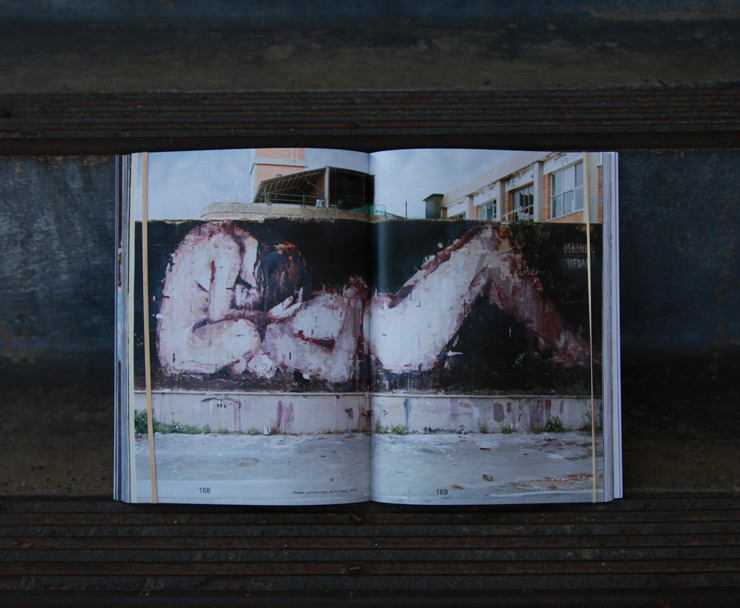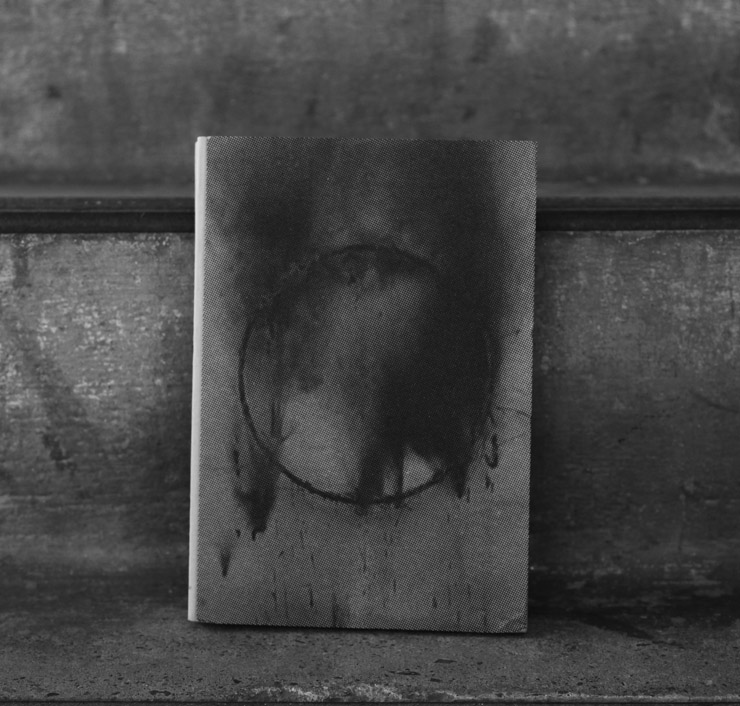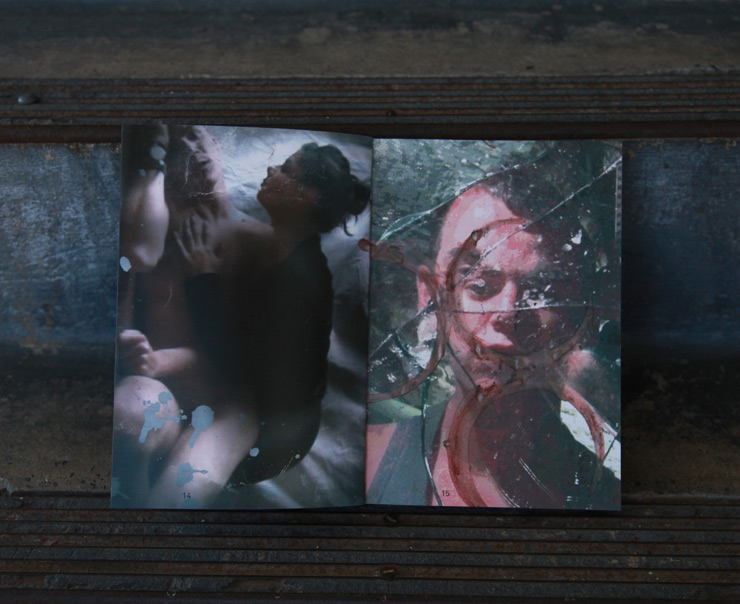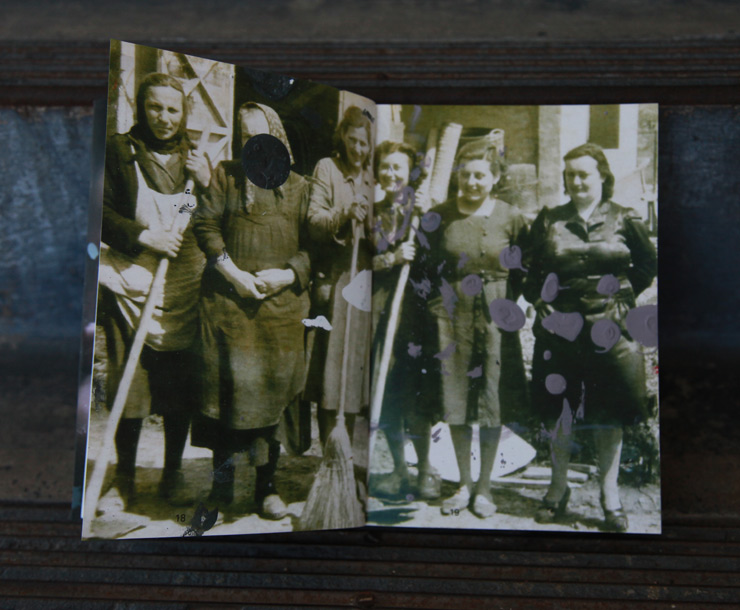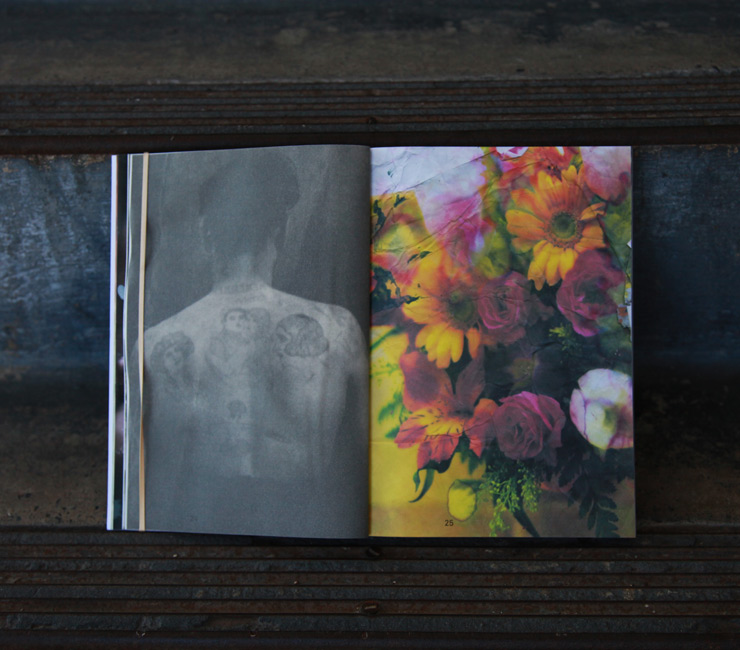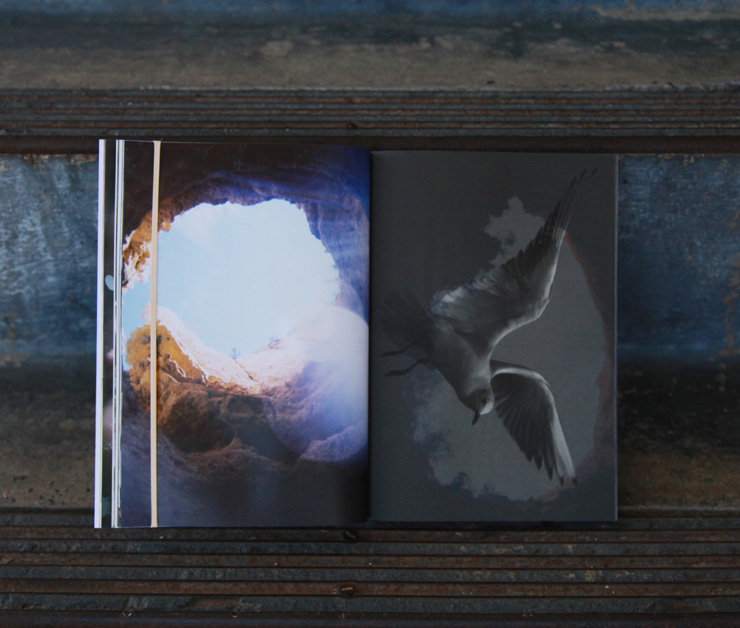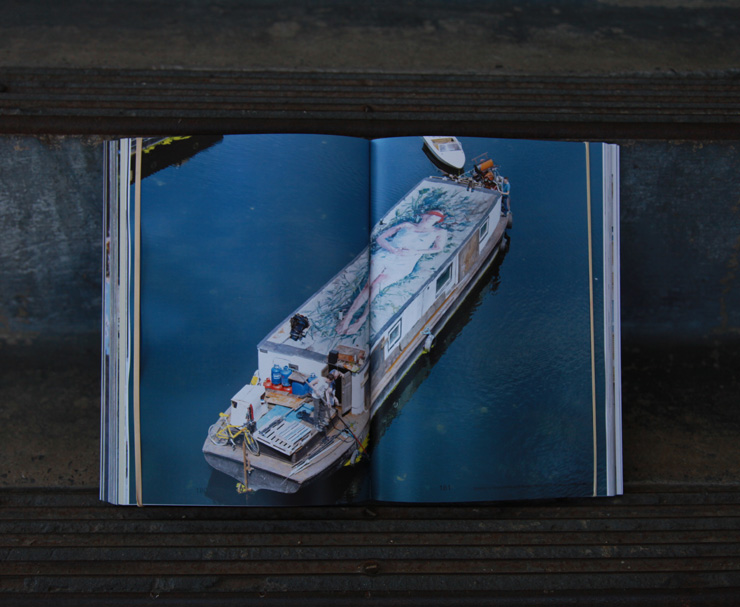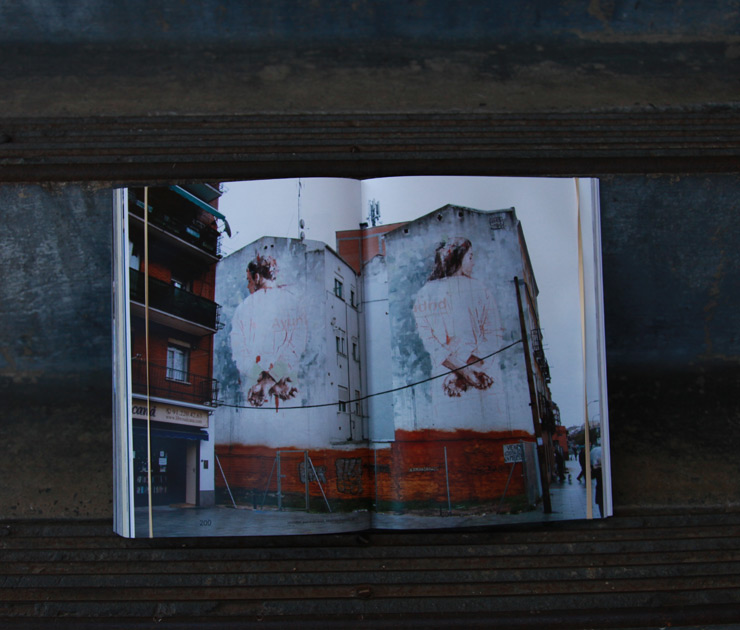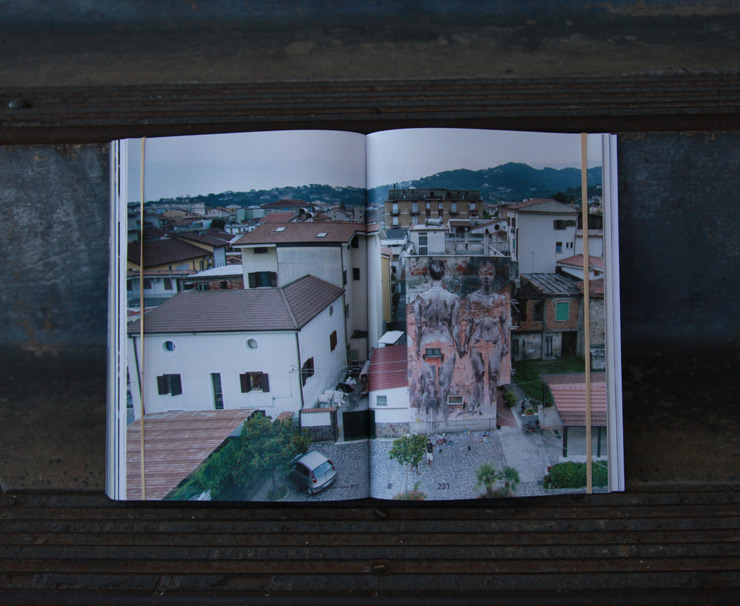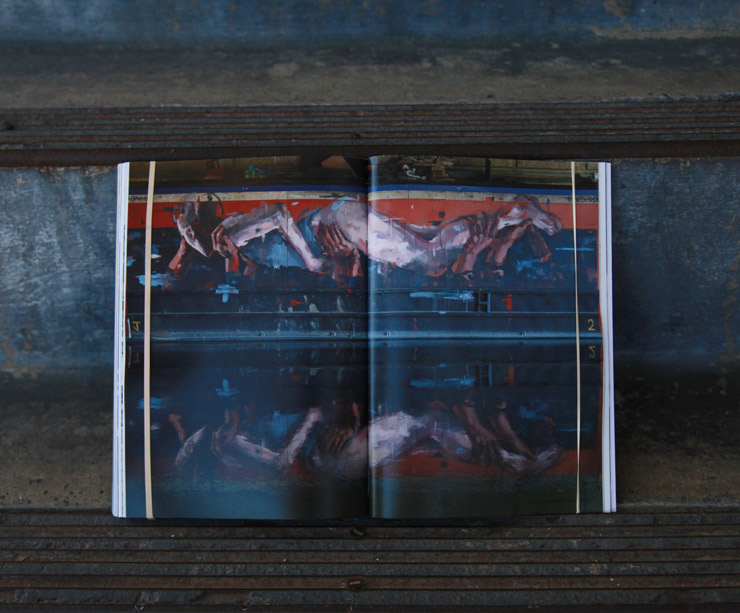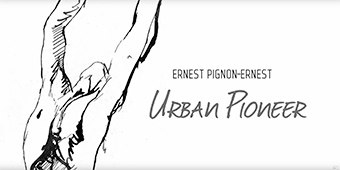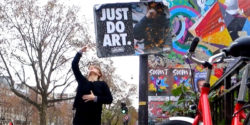Memento Mori, the collection of images and essays about the youthful Borondo is as much a reflection of the artist as it is his art and his process. Canvas bound with partial hardcover, it is unpretentious and easy enough to see into the inner workings of an artists process without feeling like a voyeur, allowing you to feel that you are catching a work in progress.
Borondo: Memento Mori (photo © Jaime Rojo)
With contemporary and possibly random images of dogs, municipally dull architecture, skulls, stuffed foxes, bathing nudes, figure studies, charcoal sketches, vintage photos that may be peasants, workers, and prisoners, the assembled collection of fragmentary influences that the artist may draw upon read as the incidental and imperfect. Inspired by reflecting on these collected and created remnants of the life timeline, his patches of paint in his finished artworks gather together to evoke a motion and a gesture, a sense of being.
Borondo: Memento Mori (photo © Jaime Rojo)
By turning the pages you are a part of the research he is undergoing, and you see how he brings to the walls and windows his latest findings. Sometimes the process is additive, other times through subtraction, but Borondo appears to discover along with his audience what lies here.
A Street Artist yes, but one of the many former graffiti writers who are chafing against that term today, perhaps not realizing that their own practice is redefining it. Not only does the work speak to the average passerby in ways we haven’t been thinking of, he is using the context of the decaying wall as further evidence of a life cycle that everyone is a part of.
Borondo: Memento Mori (photo © Jaime Rojo)
There are other Street Artists in the 2000s and 2010s who are working directly with these eroded, flaking and chipped facades of course – Vhils and ROA and Swoon come to mind – yet Borondo is rather reveling in them, integrating the imperfect.
“It is really important for a street artist to be part of the context, to be able to adapt,” he tells James Buxton, whose essay appears in English and Italian here along with new essays by Edoardo Sassi, Simone Pallotta, and Carmen Main – each helping to place the work and the artist, interpreting from their perspectives.
Borondo: Memento Mori (photo © Jaime Rojo)
Inspired by the street and the opportunities it presents for expression and communication, Borondo is experimenting and reflecting art history and western cultural norms while adding his voice to the public sphere and affecting the discourse. Peering at these remnants of contemporary times through deconstruction and reassembly, he is gently creating, all the while observing the human condition. Memento Mori will show you a bit of what he has found so far.
Borondo: Memento Mori (photo © Jaime Rojo)
Borondo: Memento Mori (photo © Jaime Rojo)
Borondo: Memento Mori (photo © Jaime Rojo)
Borondo: Memento Mori (photo © Jaime Rojo)
Borondo: Memento Mori (photo © Jaime Rojo)
Borondo: Memento Mori (photo © Jaime Rojo)
Borondo: Memento Mori (photo © Jaime Rojo)
Memento Mori is produced and coedited by Chiara Caprasecca and Chiara Pietropaoli and published by Yard Press.
<<>>><><<>BSA<<>>><<<>><><BSA<<>>><><<>BSA<<>>><<<>><><BSA
Please note: All content including images and text are © BrooklynStreetArt.com, unless otherwise noted. We like sharing BSA content for non-commercial purposes as long as you credit the photographer(s) and BSA, include a link to the original article URL and do not remove the photographer’s name from the .jpg file. Otherwise, please refrain from re-posting. Thanks!
<<>>><><<>BSA<<>>><<<>><><BSA<<>>><><<>BSA<<>>><<<>><><BSA
 BROOKLYN STREET ART LOVES YOU MORE EVERY DAY
BROOKLYN STREET ART LOVES YOU MORE EVERY DAY